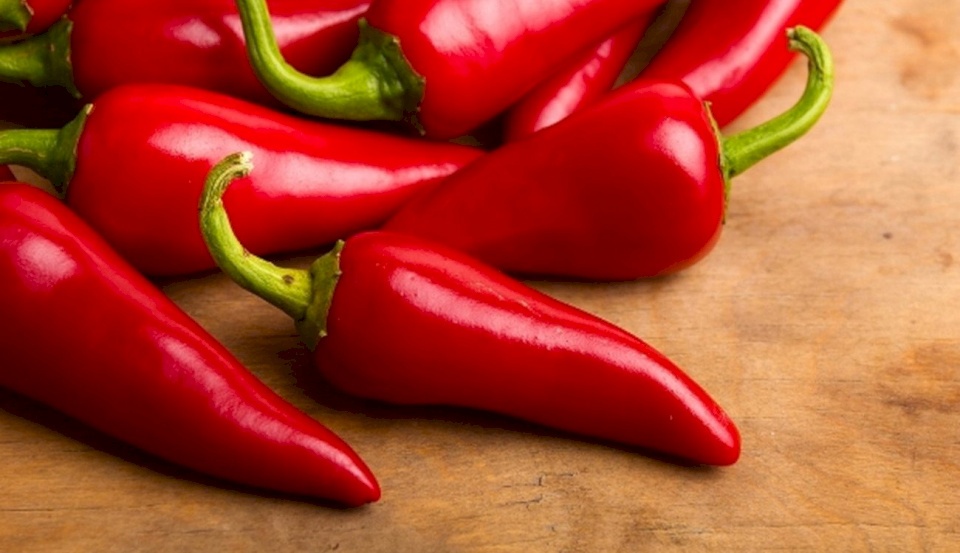
Does Spicy Food Help in Weight Loss?
SadaNews - There is a widespread belief among many people that consuming spicy food helps in reducing weight and eliminating obesity while diminishing hunger. However, medical professionals warn against excessive intake of spicy food, emphasizing that it can cause various health issues.
Chili peppers contain a substance called "capsaicin," a potent chemical concentrated in the seeds and ribs of the chili pepper, and it can lead individuals to the hospital.
Last year, three types of instant ramen noodles produced by the South Korean company "Samyang" were deemed extremely spicy, to the extent that the National Food Agency in Denmark classified them as a public health risk.
However, a report published by the specialized scientific site "Popular Science," which was reviewed by "Al Arabiya.net," states that this burning substance in chili peppers offers some astounding benefits, confirming that "there is strong evidence suggesting that consuming spicy food can help maintain a healthy weight, but simply eating more chili peppers is not enough to avoid a doctor’s visit."
Dr. William Li states: "Capsaicin activates cellular receptors on the tongue known as the (TRPV1) receptor. This activation not only stimulates a sensation of heat but also prompts your brain to release a neurotransmitter called norepinephrine, which causes a cascade of reactions leading to the activation of brown fat, a special type of fat with unique metabolic functions."
Brown adipose tissue, or brown fat, significantly differs from white fat, which often accumulates around internal organs and is used for energy storage. Although white fat is an important part of the body, it can cause problems when its levels are excessive, which is why some nutrition experts refer to it as "harmful fat."
According to Li, brown fat resembles a thin, flat layer located near muscles between the shoulder blades, behind the breastbone, around the neck, and in the abdomen. This beneficial fat plays a crucial role in regulating body temperature when external temperatures drop. Before you start to shiver, this fat activates.
Dr. Li explains: "When norepinephrine, stimulated by capsaicin from consuming chili peppers, activates brown fat, it turns on the engines of brown fat cells that generate heat, a process known as thermogenesis. To produce heat, brown fat cells need to draw energy reserves stored in other fat cells; therefore, brown fat is considered good fat that fights bad fat by burning it when activated. Thus, by consuming spicy food, you burn the white fat in your body."
One estimate suggests that consuming spicy foods can burn an additional 116 calories per day, roughly equivalent to the calories in a slice of bread. Although this may not make a significant difference, any amount helps.
Scientists highlight another important factor: chili peppers may encourage you to eat less food. Dr. Li states: "Eating chili peppers can reduce appetite in two main ways: first, the flavor can cause pain for individuals sensitive to spicy foods, which means you often think twice before devouring extremely hot food."
He adds: "Secondly, the capsaicin in chili peppers can activate the satiety center in the brain, reducing hunger."
Studies indicate that capsaicin may actually lower the hormone ghrelin, which is associated with hunger. In summary, spicy food helps you consume less overall.

Scientists Attempt to "Intercept Cancer" Before Its Formation.. Know the Details

American Fact-Checking Platform Exposes Trump's Exaggerations in State of the Union Addres...

How Mourinho Deceived Everyone and Watched the Match Between Real Madrid and Benfica from...

Fat Loss Improves Blood Pressure and Supports Immunity

Galaxy S26 Armed with a Smart Feature to Combat the Most Dangerous Threats to Smartphones

Discovery of Microplastic Particles in 90% of Prostate Cancer Cases

Artificial Intelligence Diagnoses Children's Brain Tumors with 92% Accuracy Without Surger...

